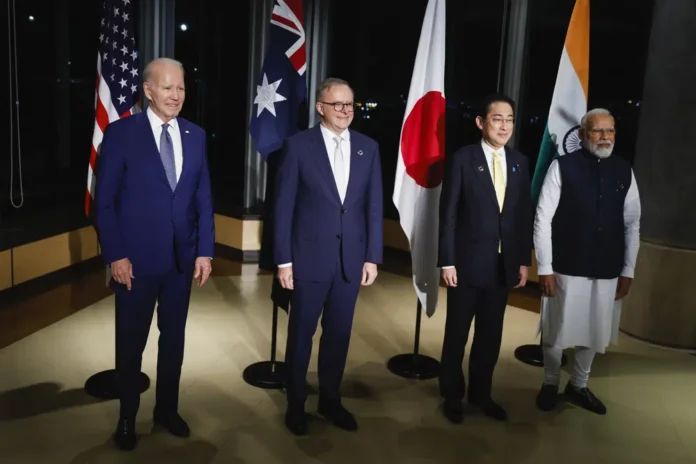TOKYO, Japan (AP) — Japan, along with the United States and Australia, announced Tuesday its participation in a major undersea cable project worth $95 million. The project aims to connect the island nations of eastern Micronesia, strengthening networks in the Indo-Pacific region, where China’s growing influence is a concern.
According to the Japanese Foreign Ministry, the undersea cable will span about 2,250 km (1,400 mi), connecting the state of Kosare in the Federated States of Micronesia, Tarawa in Kiribati, and Nauru to the existing cable landing point in Pohnpei, Micronesia.
The joint efforts by Japan, the United States and Australia reflect a heightened cooperation with Pacific island nations, a response to Beijing’s ongoing efforts to expand its security and economic dominance in the region.
In a joint statement, the participating countries outlined the steps involved in the project, including finalizing the survey, designing the cable, and starting construction. The cable, which is about the width of a garden hose, is expected to be completed by around 2025.
The development comes just two weeks after a summit of the Quad, a security alliance comprising Japan, the US, Australia and India, where leaders discussed a key component of communications infrastructure and a foundation for internet connectivity. Emphasized the importance of undersea cables.
Matthew Murray, a senior official in the US State Department’s Bureau of East Asian and Pacific Affairs, emphasized the importance of secure and resilient digital connectivity, saying, It’s a pleasure.”
NEC Corp., the company awarded the contract through a competitive tender process, expressed its commitment to ensure high-speed, high-quality and secure communications for residents, businesses and governments in the region. The project is also expected to help in digital connectivity and economic development.
Kazuya Ando, director general of the Bureau of International Cooperation at the Japanese Ministry of Foreign Affairs, estimated that more than 100,000 people in the three Pacific countries would benefit from improved connectivity provided by the undersea cable project.






